The Mountain Guide Manual
What Ive always loved about the guiding community is the focus on sharing tried and true techniques with the goal of improving safety and efficiency. This book is an aggregate of skills, tips and tricks that are the result of years of training, experience and collaboration between some of the most qualified guides and instructors in the business. It is sure to become a must-have manual for those who want to improve their technical rope skills for both climbing and guiding.
Marc Pich, technical director, Association of Canadian Mountain Guides
The Mountain Guide Manual
The Comprehensive ReferenceFrom Belaying to Rope Systems and Self-Rescue
Marc Chauvin and Rob Coppolillo

guilford, connecticut

An imprint of Globe Pequot
Falcon and FalconGuides are registered trademarks and Make Adventure Your Story is a trademark of Rowman & Littlefield.
Distributed by NATIONAL BOOK NETWORK
Copyright 2017 by Marc Chauvin and Rob Coppolillo
All rights reserved . No part of this book may be reproduced in any form or by any electronic or mechanical means, including information storage and retrieval systems, without written permission from the publisher, except by a reviewer who may quote passages in a review.
Photos by the authors unless credited otherwise
British Library Cataloguing in Publication Information Available
Library of Congress Cataloging-in-Publication Data Available
ISBN 978-1-4930-2514-5 (paperback)
ISBN 978-1-4930-2515-2 (e-book)
 The paper used in this publication meets the minimum requirements of American National Standard for Information SciencesPermanence of Paper for Printed Library Materials, ANSI/NISO Z39.48-1992.
The paper used in this publication meets the minimum requirements of American National Standard for Information SciencesPermanence of Paper for Printed Library Materials, ANSI/NISO Z39.48-1992.
Printed in the United States of America
Warning: Climbing is a dangerous sport. You can be seriously injured or die. Read the following before you use this book.
This is an instruction book about ice, alpine, and rock climbing, a sport that is inherently dangerous. Do not depend solely on information from this book for your personal safety. Your climbing safety depends on your own judgment based on competent instruction, experience, and a realistic assessment of your climbing ability.
The training advice given in this book is based on the authors opinions. Consult your physician before engaging in any part of the training program described by the authors.
There are no warranties, either expressed or implied, that this instruction book contains accurate and reliable information. There are no warranties as to fitness for a particular purpose or that this book is merchantable. Your use of this book indicates your assumption of the risk of death or serious injury as a result of climbings risks and is an acknowledgment of your own sole responsibility for your safety in climbing or in training for climbing.
Rowman & Littlefield, the authors, and the American Mountain Guides Association (AMGA) assume no liability for accidents happening to, or injuries sustained by, readers who engage in the activities described in this book.
To my family. My wife Jane has dealt with my extended trips and helped immensely with my logistics over the years. I couldnt dream of a better partner. Also to my daughters who accepted growing up with a father who at times was working in the mountains and missed important events in their childhoods, everything from birthdays and plays to dance and music recitals.Marc
To mentors and teachers everywhere, among whom Marc Chauvin is one of the best. To Fred Engel, a true gentleman and scholar who passed during the writing of the book. Love and gratitude to you Fredyou are missed. And to my family with an overflowing heart: Dommy, Luca, and Rebelwe did it!Rob
Perfection is achieved, not when there is nothing more to add, but when there is nothing left to take away.
Antoine de Saint-Exupry
Order and simplification are the first steps towards the mastery of a subject.
Paul Thomas Mann
Acknowledgments
I would like to acknowledge the core group of instructors I got to work with at the inception of the AMGA Guide Training Courses: Alan Jolley, Mark Houston, Kathy Cosley, SP Parker, Steve Young, Alain Comeau, KC Baum, Eric Craig, Dave Staeheli, Bela Vadasz, Jean Pavillard, Karl Klassen, and Colin Zacharias. The foundation of this book was laid in those early days.
More recently, Jay Philbrick was crucial, taking many of the photos, and cant be thanked enough. The models who helped set up the shots in North Conway: Nicole Wrobel, Justin Guarino, Andrew J. Blease, Holly M. Blease, and Jane Chauvin. Finally, all the candidates and AMGA Instructor Team members I have worked with over the years in the guide training courses and exams.MC
Without all my instructors, examiners, and mentors within the climbing community, editing and writing this book wouldnt have been possible. Tim Brown, Joey Thompson, Bill Wilkin, Markus Beck, Lee McNeely, Mike Arnold, Eli Helmuth, Trey Cook, Doug Nidever, Dale Remsberg, Brian Lazar, Paul Rogers, Colin Zacharias, and everyone Ive missedthank you.
Sincere thanks to FalconGuides for undertaking such an endeavor. And heres to the certified guides who commit to the standard and refine the craft daily.
Justin and Berndt, thanks for the endless patience and modeling. You helped a below-average photographermeshoot some OK stuff. Emilie, Silas, Angela, PattyP, Howie, Morrone, excellent contributions, appreciate the shared wisdom. And the friendships.
Sean and Azissa, great job on the double duties of writing and modeling. Remember me when you blow up!
Jay Philbrickyour images help make the book. Thank you.RC
Introduction
W e love to climb and ski in the mountains. It challenges us and creates fantastic memories, and it also carries a measure of risk. Most things do, but its simple fact that climbing and skiing usually incur more than the rest of our daily lives.
So first we must realize that if something is truly risky, it means even if we do everything correctly, something bad can happen. Or put another way, not everything that could go wrong is in our control. Some people call this objective hazard, or even more dramatically, an act of God.
Some risks, however, we can control or at least mitigate through our actions. As climbers and skiers we should learn, nurture, and develop these tools. Technical systems like belaying, anchor building, and short-roping all help to manage risk. Learning these strategies and systems proves the easy part. Far trickier can be having a realistic perspective on our competencies with those systems. Are we as good as we think we are? Do we sometimes look for a technical solution to a problem we could solve more simply?
We encourage you to devote the time and energy to amass wisdom and sound judgment in the mountainsthere are no magic shortcuts. What can help, though, is feedback from those with experience, people whove made the mistakes, learned from them, and progressed.
What we present here loosely follows the organization of coursework in the American Mountain Guides Association (AMGA) training program. Just as guide candidates begin their studies with fundamentals like gear, anchors, belaying, and rope systems, in this book we introduce an overall system, beginning with those topics and progressing into more complicated subjects like bigger terrain, glaciated peaks, waterfall ice, and even self-rescue.
We often hear or are asked, Whats the AMGA way? We definitively state: There is no AMGA way. Certified guides teach and practice a range of technical systems and decision-making systems. We strive to implement the right technique at the right time, and within that there is a wide array of skills that are appropriate and vetted.
Next page
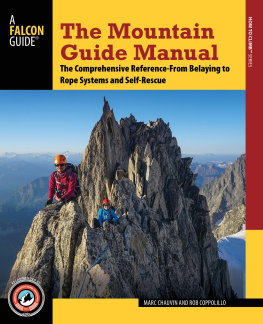
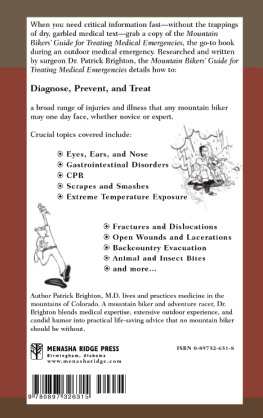
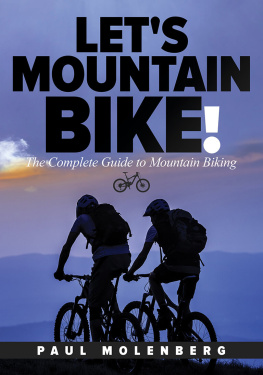

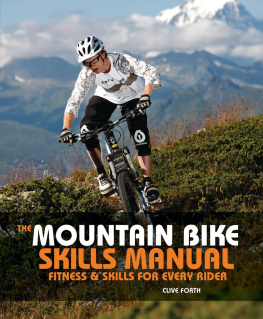
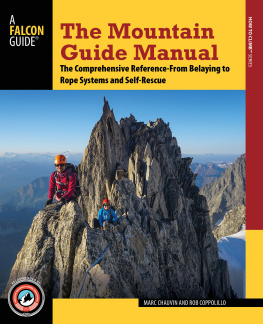
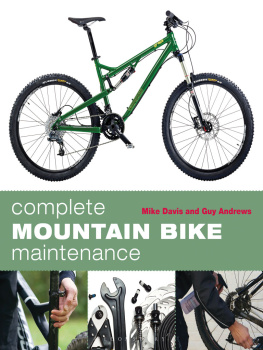
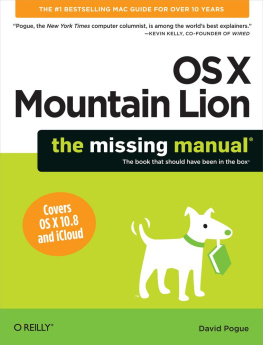
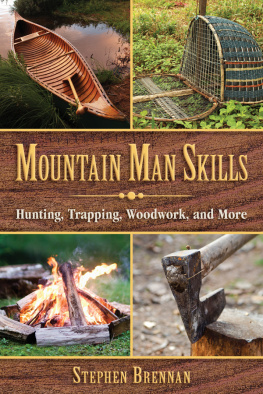


 The paper used in this publication meets the minimum requirements of American National Standard for Information SciencesPermanence of Paper for Printed Library Materials, ANSI/NISO Z39.48-1992.
The paper used in this publication meets the minimum requirements of American National Standard for Information SciencesPermanence of Paper for Printed Library Materials, ANSI/NISO Z39.48-1992.